There is also a plan with an airline ticket.
NAKAMURA TEA LIFE STORE:A designer and longtime friend & grower share the wonders of a Japanese tea life
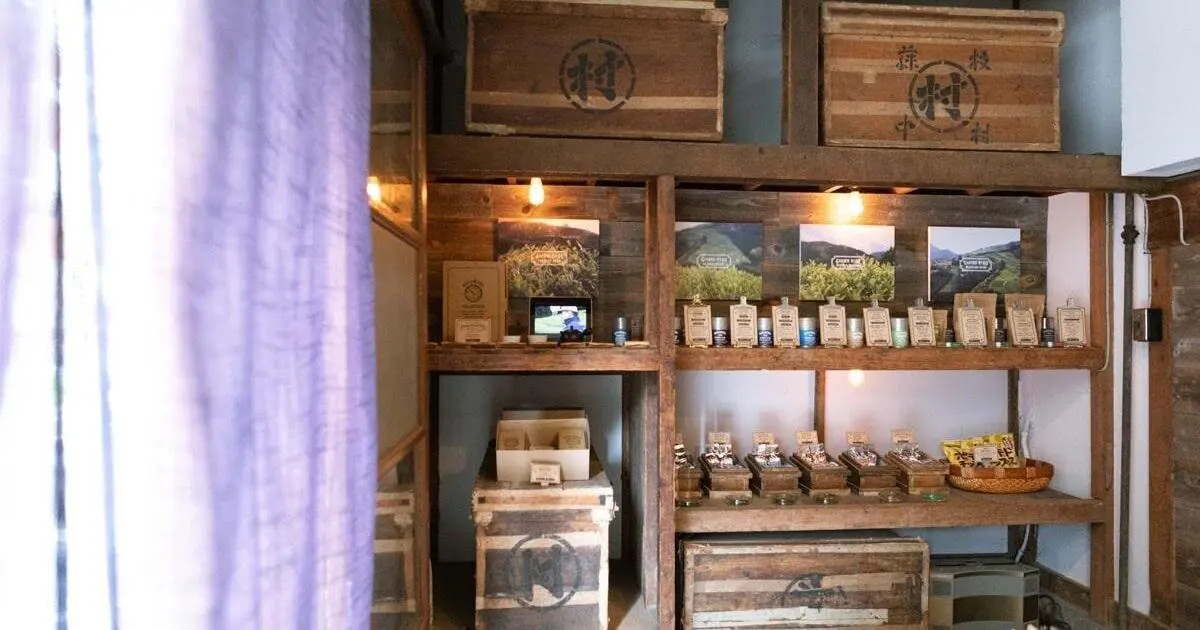
--Please tell us the story of how you started the NAKAMURA TEA LIFE STORE.
(Keigo Nishikata, NAKAMURA TEA LIFE STORE): I'm running this shop with Michio Nakamura, who has been my friend and classmate ever since elementary school and junior-high. Michio is the son of a family in Shizuoka which has been growing Japanese tea leaves for over 100 years, and he took over the family business in his late 20s.
I came to Tokyo when I was 18, and after Michio entered his family business, he would tell me about his work when I went back and forth between Shizuoka, and I got to understand the nature of the tea business.
When I was in Shizuoka, Japanese tea was just something I took for granted. It was only when I came to Tokyo that I realized pouring Japanese tea with a kyusu teapot was not something everyone did. After that, when I heard that people were drinking less Japanese tea these days, I wasn't at all surprised.
At the time, I was working in design and imagery, and was thinking of going independent. I decided to use that opportunity to help people get to know Japanese tea better, so I started creating modern designs for tea packages, and began selling them online. Later, in 2015, I opened the NAKAMURA TEA LIFE STORE. Until that time, I mainly sold to large wholesalers in Shizuoka, and had never sold directly to customers before.
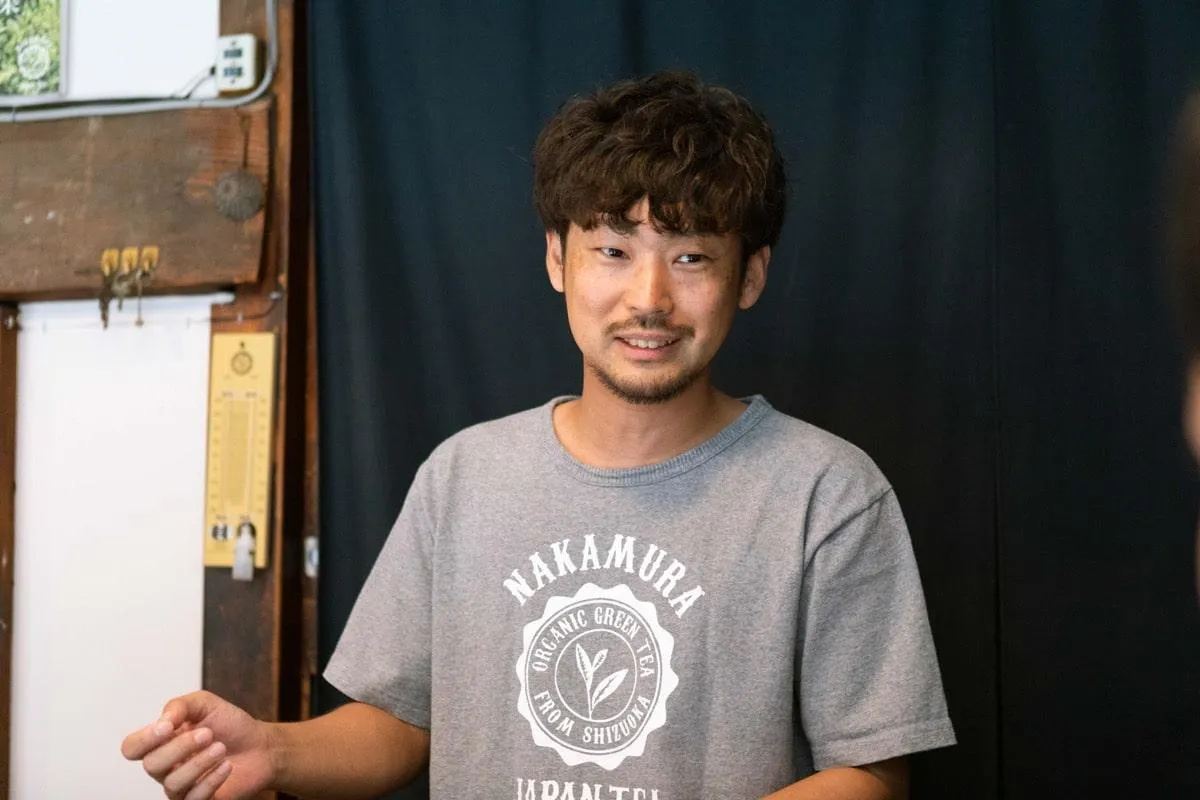
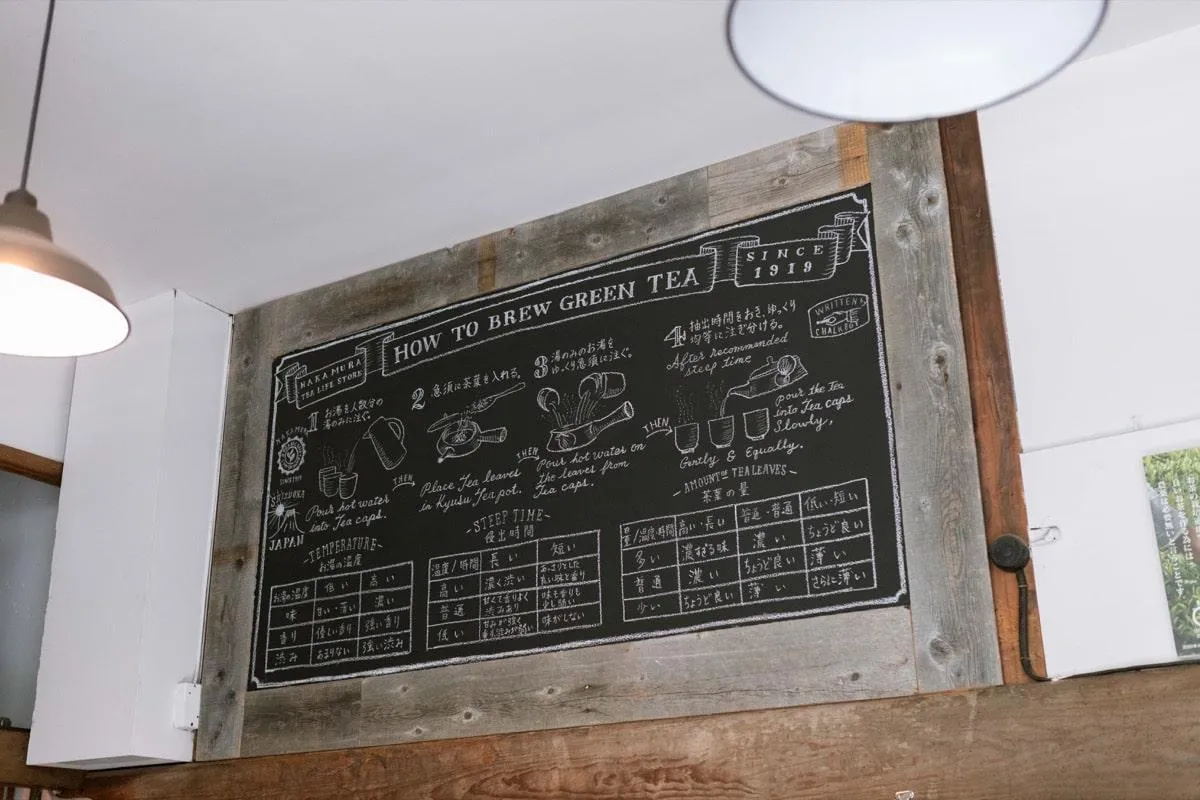
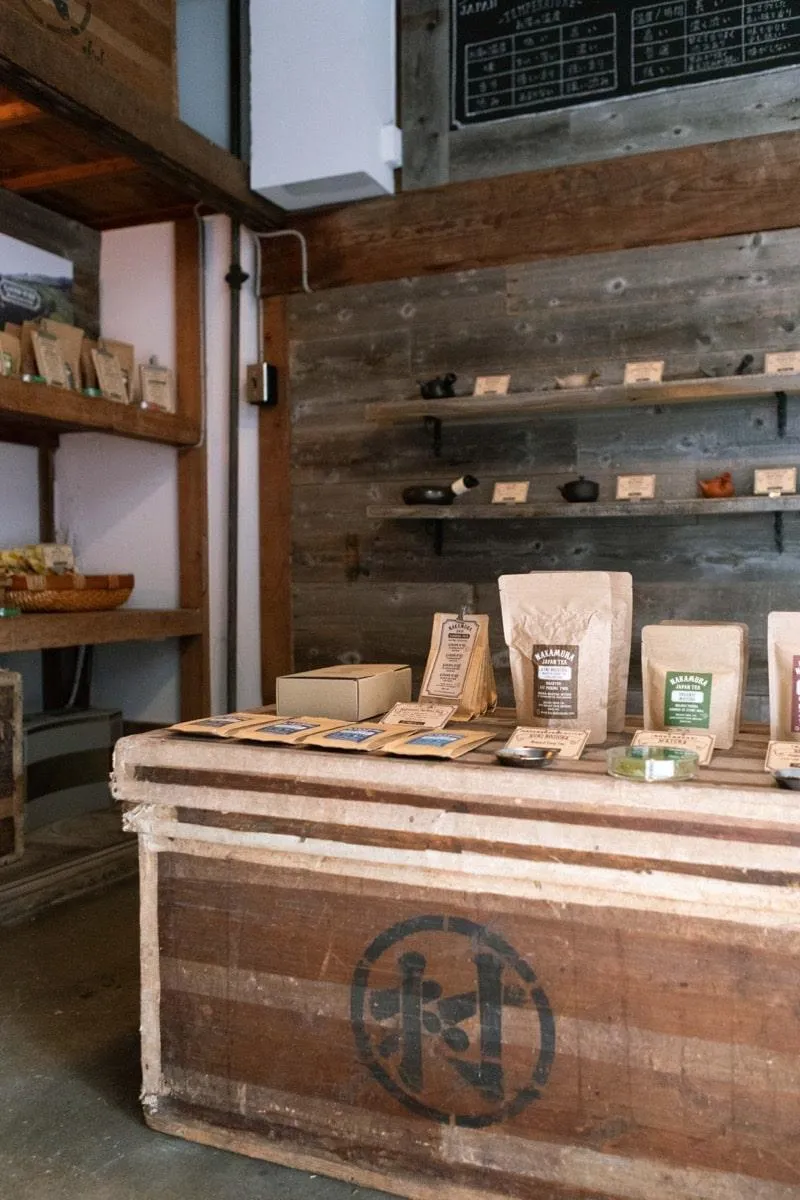
--What led you to choose Kuramae as the location for your shop?
I didn't choose Kuramae in particular, but as there were already some tea shops on the west side of Tokyo, and to be honest the rent was high, I wanted to look on the east side of Tokyo. My friend told me, "I keep hearing about Kuramae from time to time, why don't you go check it out?"
So, I first came to visit Kuramae in September 2014.
Before I came, I picked out some nice-looking shops to visit in Kuramae, and so set out to find m+ (m piu) and Kakimori (moved prior to 2017). While I was walking in the area, I saw a building seeking a tenant, which happened to be this very shop.
I called the number on the flyer and reached a real estate agent, who then connected me with the landlord, who is actually living just above the shop, so he came right out to meet me. While he was showing me around, I decided this was the place for me. And this was all on my first visit to Kuramae, and I hadn't even been here an hour yet.
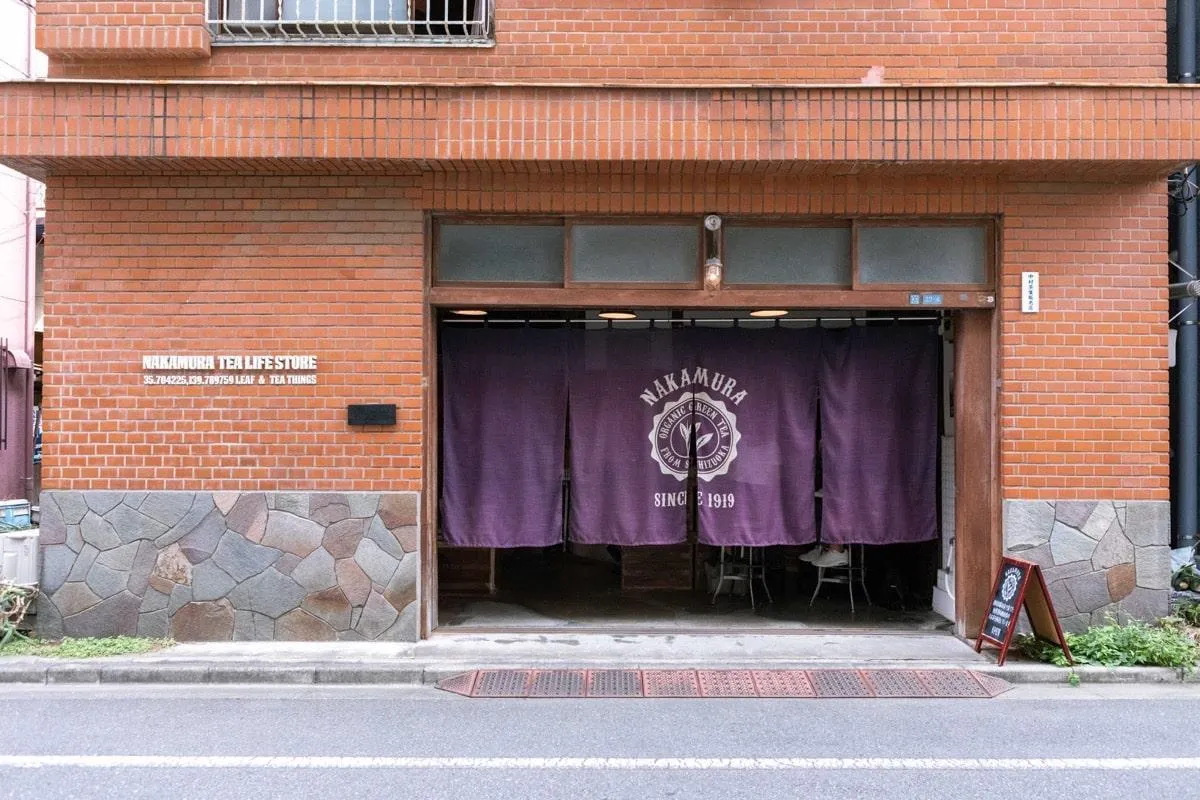
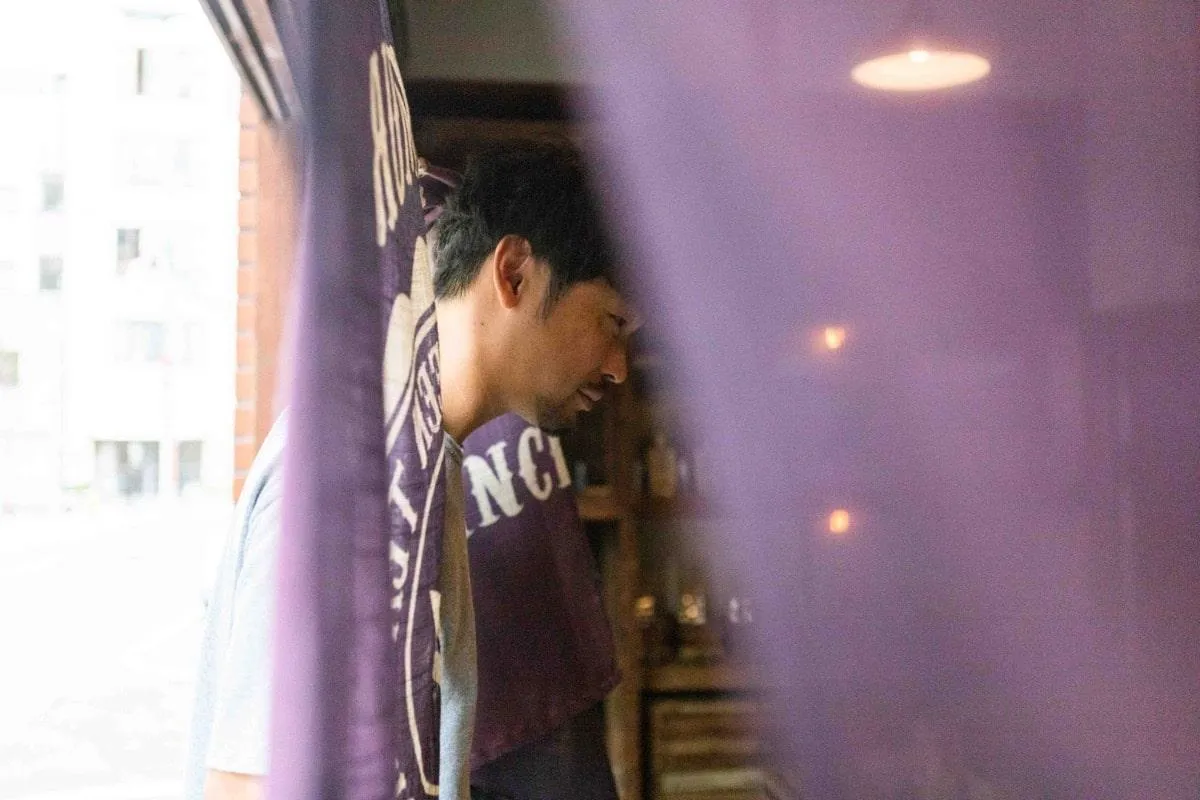
--What thoughts guided you while setting up your shop?
Not only the shop, but in the entire design, as I am selling Japanese tea, which is not a new product, and has been around for a long time, I try to change how the tea is presented to help people rediscover its value.
When I first rented this shop, it was quite a mess, but instead of getting rid of what was already here, I would repaint the parts that needed care, and tried to avoid overdoing things.
The wooden boxes that you see here are tea leave boxes from the Nakamura family. The inner surface is made of galvanized corrugated iron, and the boxes are designed for storing and transporting tea leaves.
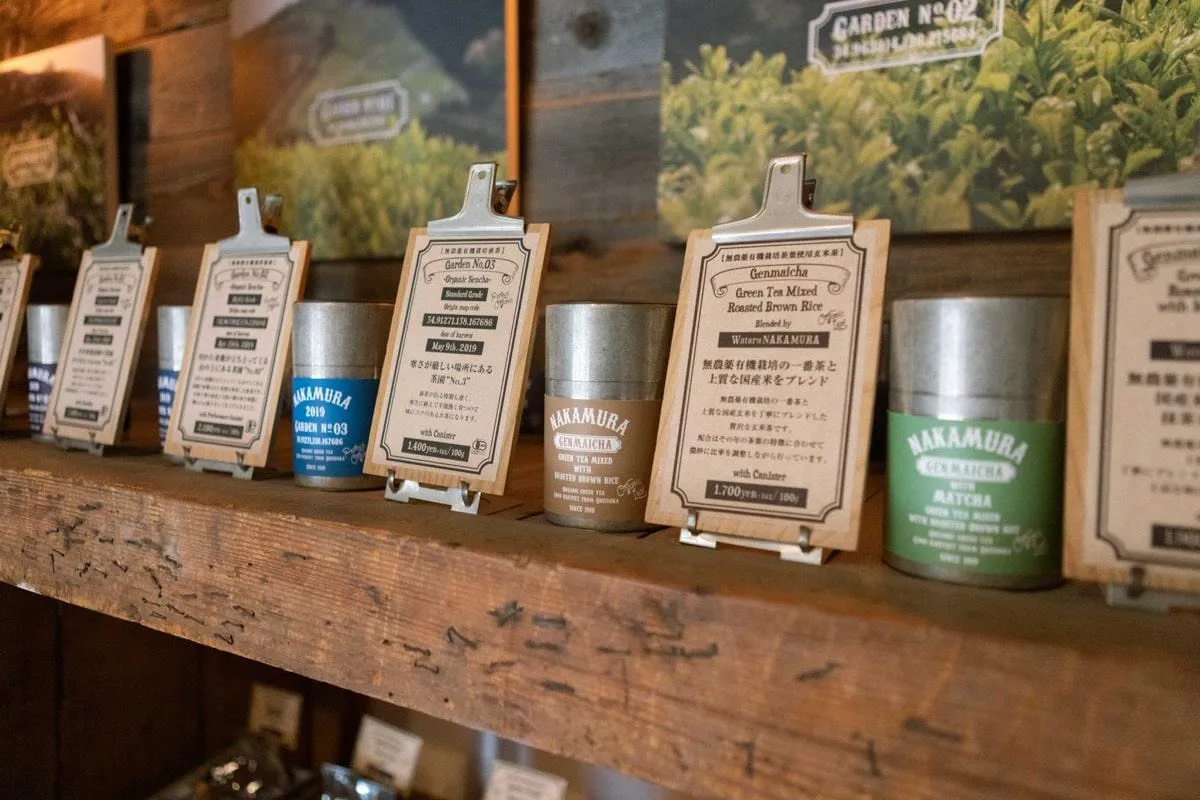
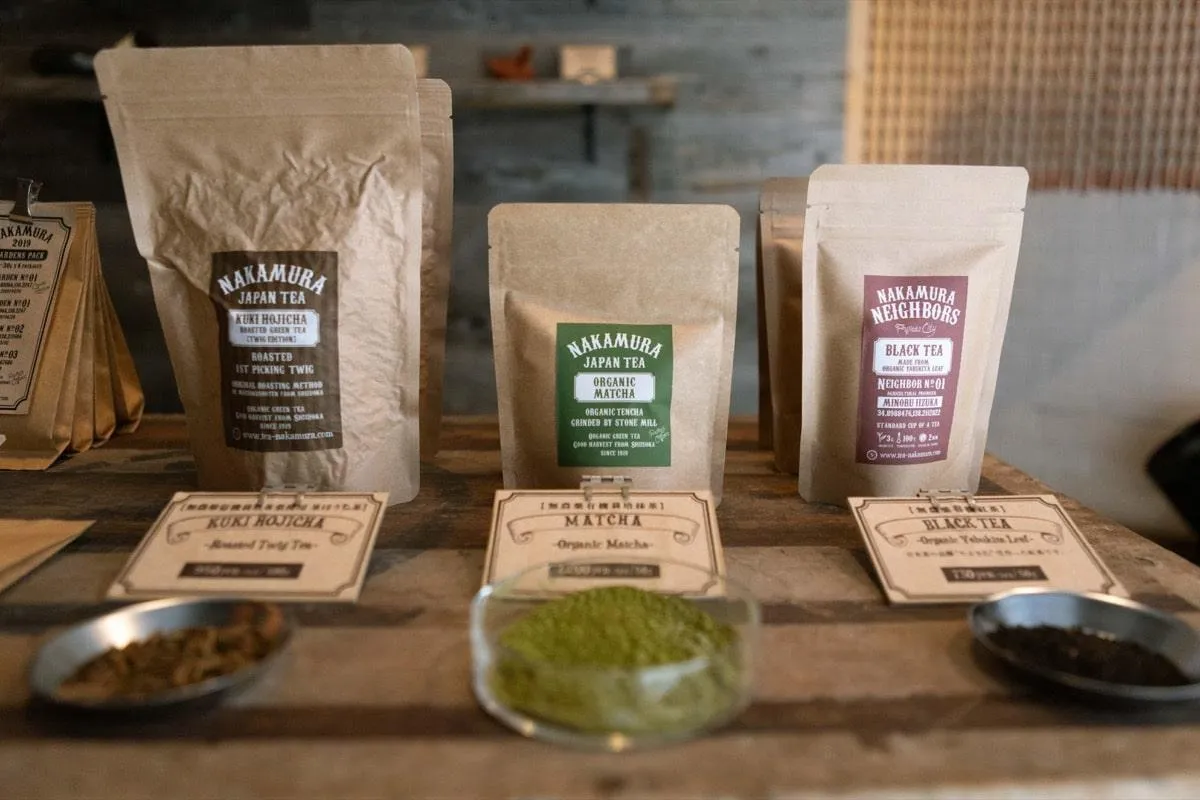
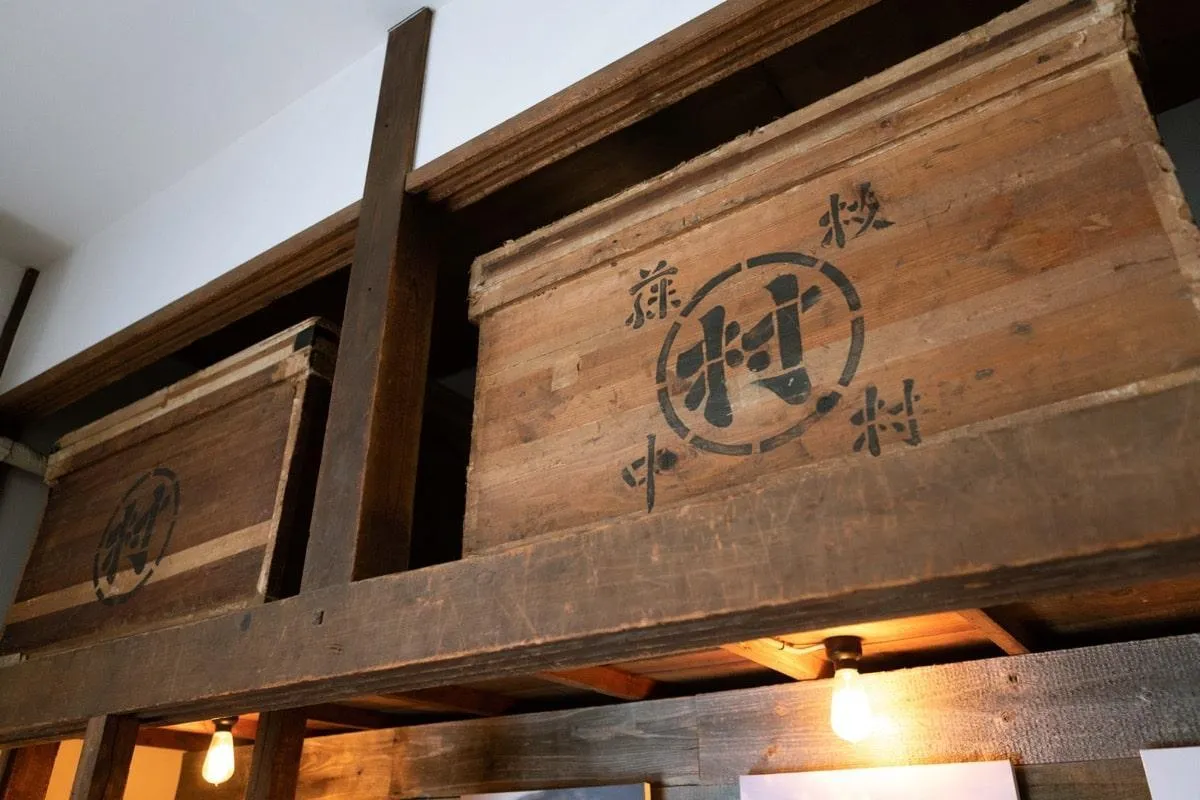
--Your store name is not simply, "NAKAMURA TEA STORE," it also includes the word, "LIFE." What do you want to share with the people visiting your shop?
First, as few people have a kyusu teapot at home, telling a person who doesn't have a teapot how great the tea leaves are won't resonate. That's why we pour tea for people right in the shop, so they can feel what kind of lifestyle is waiting once they have a teapot.
Of course, we offer wonderful Japanese tea leaves, but with that being a given, I wanted people to learn about the whole environment that surrounds tea leaves, and that's why I named the store NAKAMURA TEA LIFE STORE. We also sell kyusu teapots, and even sets combining tea leaves and teapots. Many people buy our products to offer as wedding or moving gifts.
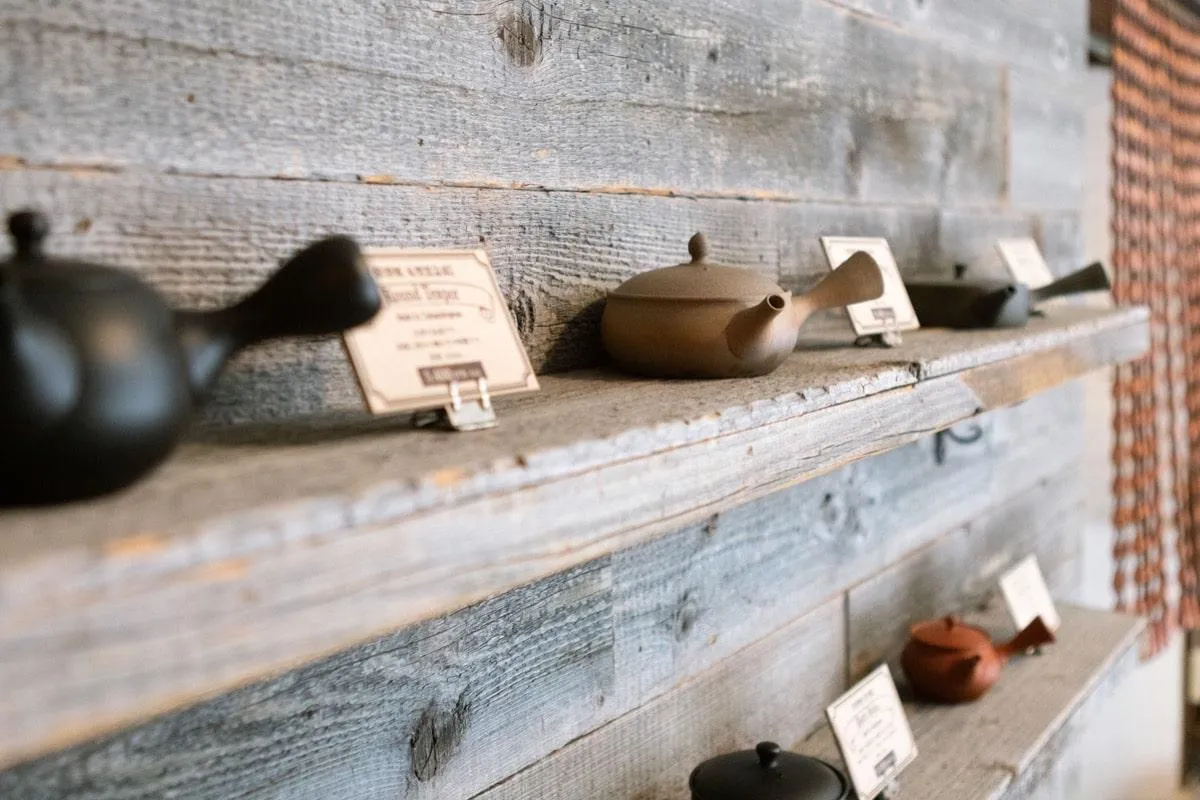
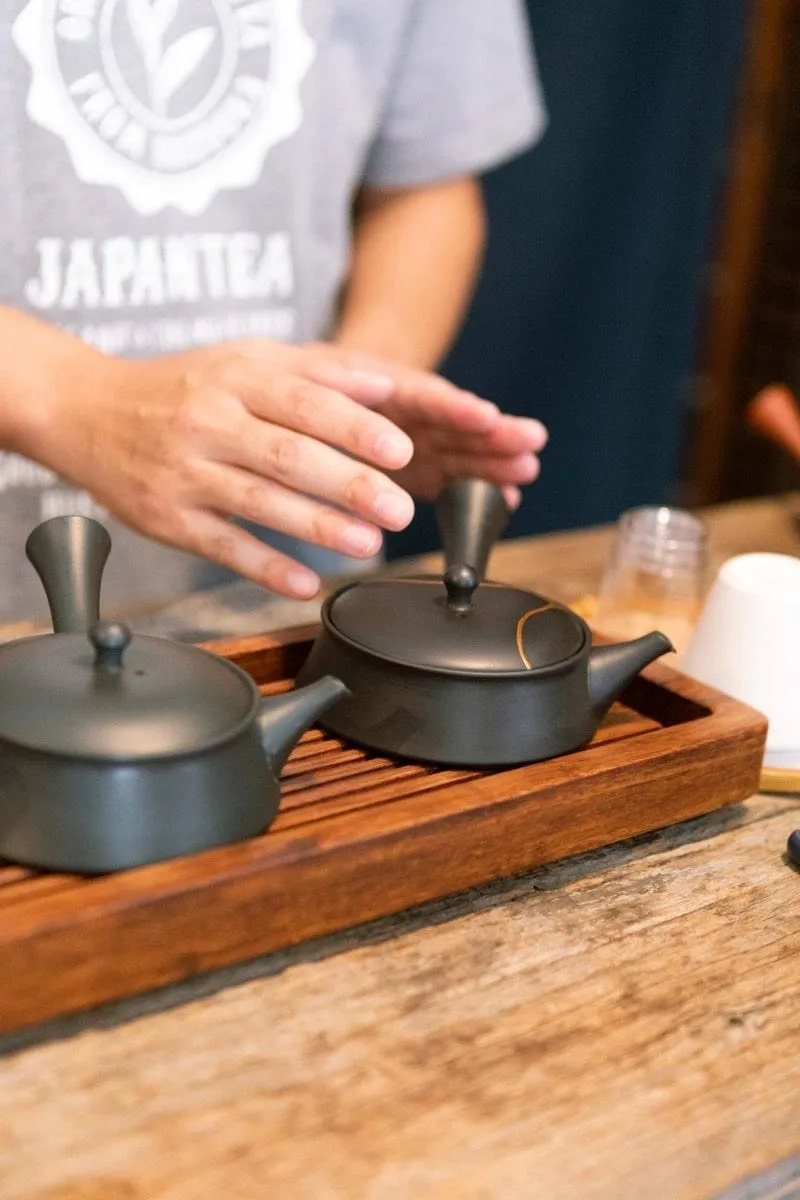
--How was the customer response when you started the shop?
When I first opened, I was thinking we wouldn't get many customers from the start, but people in the neighborhood recommended the shop, and so right from the beginning we would be serving one customer while another was looking around the shop.
There wasn't any other tea shop in the area, so local residents came looking to buy tea. When I first opened, there weren't so many different shops in the area like there are today, so many locals would ask me, "why did you choose this place?"
I only noticed a bit after opening the shop, but there are many craftspeople in Kuramae, and that means the people who come to our shop are not just looking at the specification and price of the product, they also want to understand the person making the product by the time they leave the shop.
There aren't many tea shops in Tokyo dedicated to a single tea leaf grower, and we may not have many products, and the products you see on the shelf might not be that different from each other. Even so, many people are interested in talking to us about the minute differences between each of our individual products.
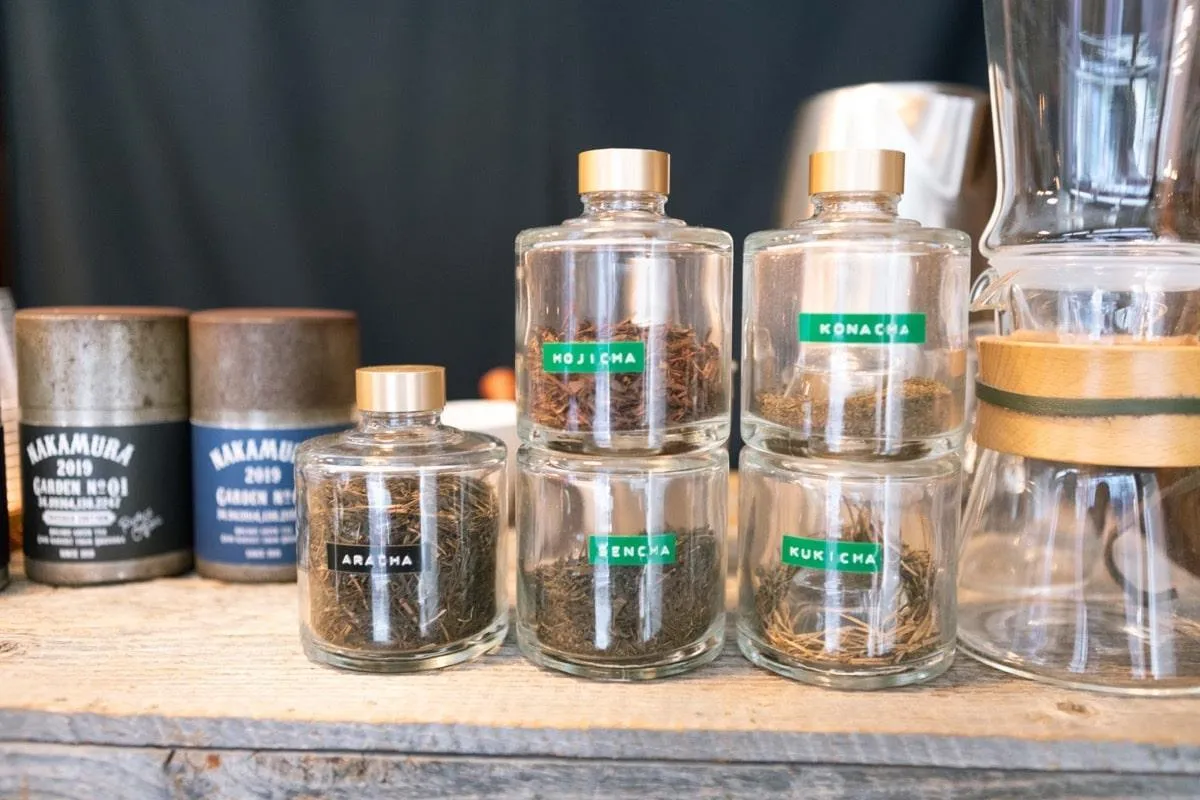
--How do you see NAKAMURA TEA LIFE STORE developing in the future?
As we really only offer tea leaves from the Nakamura farm, for us, creating a new product means planting a new variety of tea tree. This year, we've just been able to offer a small amount of a new tea from a variety of tea tree we planted three years ago. While all our tea leaves until now have been processed by machine, Michio Nakamura wanted to use the opportunity of this new product to offer hand pressed tea leaves. It is a very intensive process that requires a great deal of skill, and many young people no longer know the techniques. Michio, however, will be offering demonstrations of the technique right here in the shop. I want to make the NAKAMURA TEA LIFE STORE a place where creators can connect directly and share their feelings with their customers.
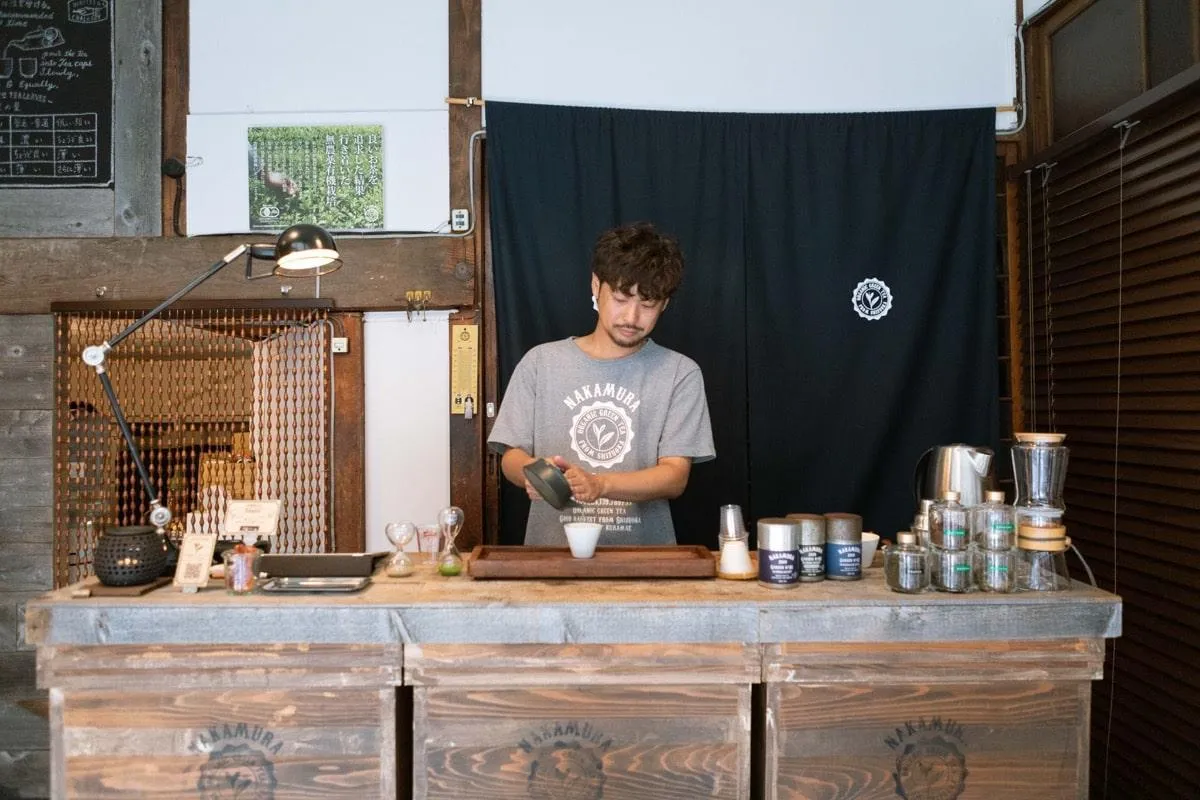
Profile
A direct sale shop for the Nakamura Tea Farm, which has been growing tea for over 100 years in Fujieda City, Shizuoka Prefecture. The entire process of producing tea leaves from cultivation and harvesting to processing is handled directly by the Nakamura Tea Farm, and the label on each package includes the date of harvest, the location the tea was harvested, and the cultivation methods used.
The Nakamura Tea Farm prides itself on organic Japanese tea, which it first began cultivating approximately 30 years ago. At the time, surrounding farmers voiced their opposition due to the concern of pests and disease spreading from the organic farm to other locations, but through tireless efforts by the Nakamura Tea Farm over the years, organic cultivation methods are now being adopted by surrounding farms. Hideo Nakamura, the third-generation head of the farm first started organic cultivation, and those techniques are now continued by the fourth generation, Wataru Nakamura and his younger brother Michio Nakamura, together with the many veteran craftspeople of the Nakamura Tea Farm.
http://tea-nakamura.com/
4-20-4 Kuramae, Taito City, Tokyo
20-minute walk from NOHGA Hotel Ueno, 8-minutes by bicycle.
〉See on Google Map
Nomura Real Estate Development Group
TOKYO
Other prefecture

